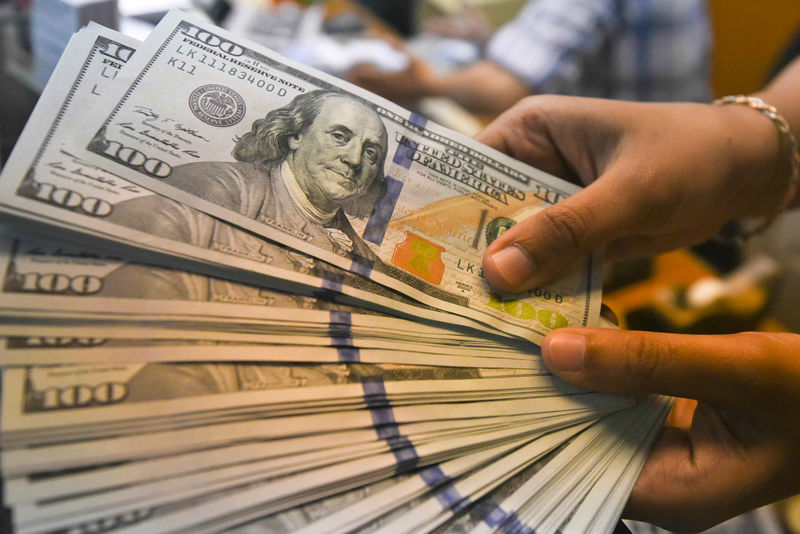By Saikat Chatterjee
LONDON (Reuters) - The dollar rebounded from early lows and edged higher against most of its rivals on Friday but was still on track for its biggest weekly drop in seven months as stronger equity markets and rising bond yields fueled a rush to buy riskier assets.
With trade war concerns receding in the background and emerging market central banks led by Turkey taking measures to stabilize their currencies, investors pushed the euro to the $1.18 line for the first time in more than three months.
"This is textbook risk-on behavior in the markets and, though it is hard to find an immediate catalyst, falling trade conflict concerns and improvement in emerging market sentiment has helped," said John Marley, a senior currency consultant at Smart Currency Business, and FX risk-management specialist.
Premier Li Keqiang pledged on Wednesday that Beijing will not engage in competitive currency devaluation, a day after his country and Washington plunged deeper into a trade war with more tit-for-tat tariffs.
Global shares hit their highest levels in more than six months on Friday while the MSCI's broadest index of Asia-Pacific shares outside Japan (MIAPJ0000PUS) was up 1.27 percent, partly on expectations that Beijing will pump more money into its economy to weather the trade war.
The dollar index drifted 0.1 percent (DXY) higher to 94.02 as investors consolidated positions before the weekend, but the greenback was set for its biggest weekly drop since February.
A sell-off in the dollar that began in the late European session on Thursday gathered steam overnight as investors ramped up bets that the U.S. Federal Reserve will be near the end of its rate-rise cycle after an expected increase next week.
Market expectations are for approximately two increases to U.S. interest next year and Russell Investments said that medium-term recession risks in the U.S. economy are now elevated, pointing to a number of indicators such as a tightening labor market.
"The weakness in the dollar is prompting investors to unwind their short bets against other currencies such as the euro, and this move may have further room to run," said Manuel Oliveri, a currency strategist at Credit Agricole (PA:CAGR) in London.
The dollar's bounce pushed the single currency (EUR=EBS) back into the red at $1.1768, taking its gains for the week to nearly 1.5 percent.
Amid a bounce in currencies such as the Turkish lira and South African rand, ravaged earlier in the month by trade friction and domestic factors, MSCI's emerging market currency index (MIEM00000CUS) climbed 0.4 percent to its highest since late August.
The Australian dollar, a proxy of China-related trades as well as a gauge of risk sentiment, climbed to a three-week high of $0.7297

The pound